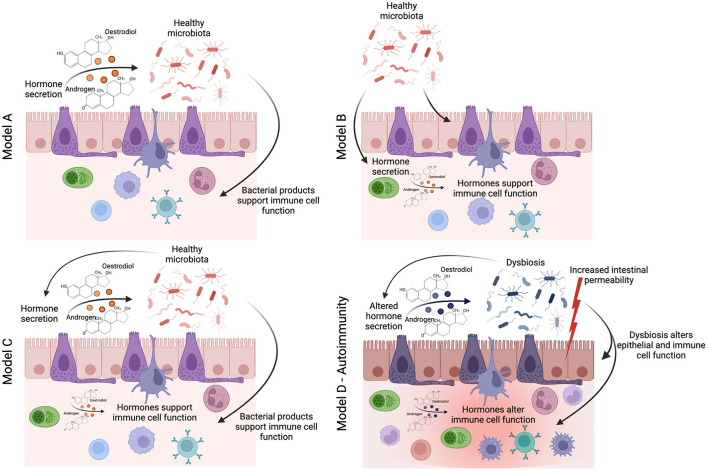Figure 1.
How does sexual dimorphism in the gut-microbiota influence the immune system in health and disease? The seminal study by Yurkovetskiy et al. (6) proposes three models by which the sexual dimoprhism in the gut-microbiota may influence immune system function. In linear model A, sex-hormones regulate the identity of gut-microbes (either through immune or metabolic mechanisms), and then the gut-microbes themselves activate specific immune effector mechanisms. In linear model B, gut-microbes are regulators of sex hormone metabolism, and sex-hormones are the actual effectors on immune responses. In a two-signal model C, both microbiota and hormones could contribute in an additive fashion to influence effector mechanisms (6). We would like to add an additional model for autoimmune conditions (model D), where homeostasis is lost, leading to dysbiosis, increased intestinal permeability, potential changes in the regulation of sex-hormone production, and thus altered function of the immune cell compartment and chronic inflammation.

